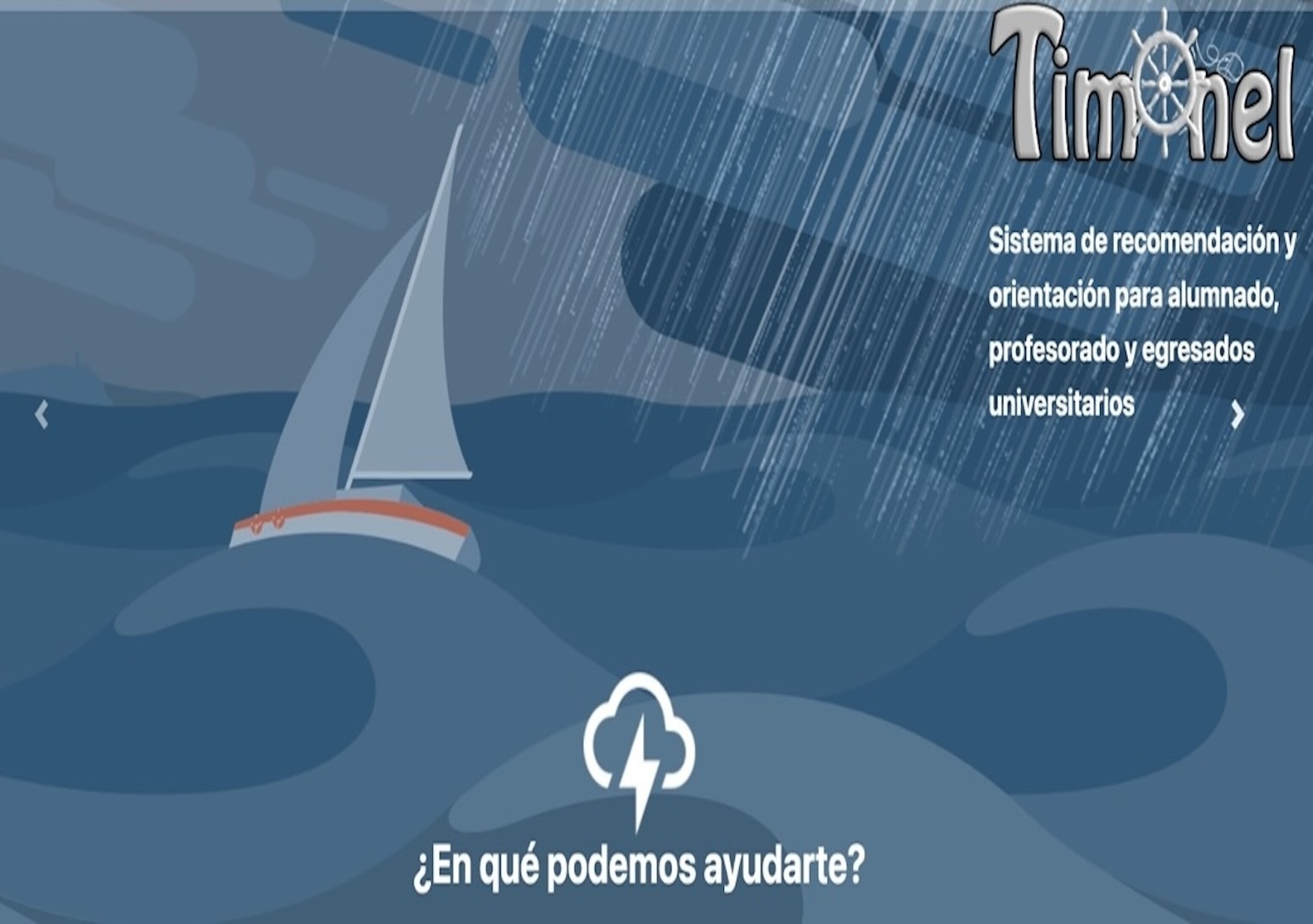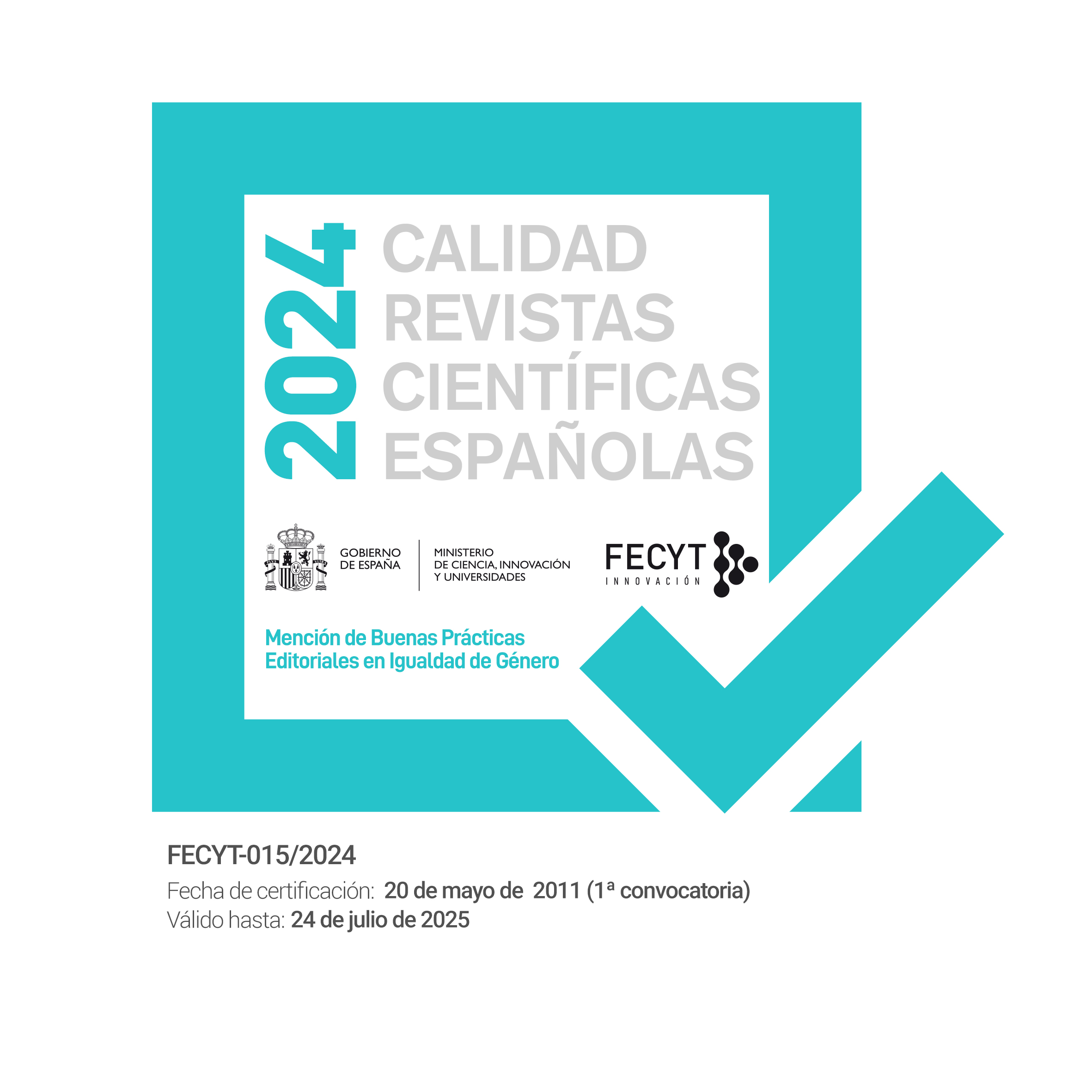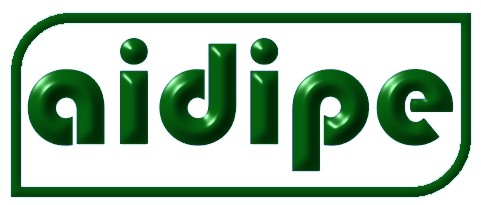Factors that define professional guidance at university: assessment by professors and students
DOI:
https://doi.org/10.30827/relieve.v30i2.29094Keywords:
professional guidance, training, university, professors, studentsAbstract
Professional guidance plays a crucial role in universities, as it is one of the main stages that leads directly to the job market. Understanding how the professional guidance is conducted, is an effective means of developing programmes for its development and integration into the university study plans. This research aims to accomplish that by considering the perspectives of professors and university students from universities with very different typologies, giving the sample guarantees of diversity. A total of 841 professors and 2.264 students from the universities of Jaén and Granada in Spain participated in the study. The design was mixed, in which quantitative and qualitative techniques and instruments, such as scales, discussion groups and interviews, coexisted. The findings revealed a need for more training for professors to enhance the professional guidance provided to students during university tutoring. However, professors expressed a certain level of optimism regarding their current approach to professional guidance.
Downloads
References
Alonso-García, S., Rodríguez, A.M., & Cáceres, M.P. (2018). Análisis de la acción tutorial y su incidencia en el desarrollo integral del alumnado. El caso de la Universidad de Castilla La Mancha (España). Formación Universitaria, 11(3), 63-72. http://doi.org/10.4067/S0718-50062018000300063
Álvarez González, M. (2017). Hacia un modelo integrador de la tutoría en los diferentes niveles educativos. Educatio Siglo XXI, 35(2), 21-42. https://doi.org/10.6018/j/298501
Álvarez Pérez, P. (2012). Tutoría universitaria inclusiva. Guía de buenas prácticas para la orientación de estudiantes con necesidades educativas específicas. Narcea.
Brown, J.L., Hammer, S.J., Perera, H.N. & McIlveen, P. (2022). Relations between graduates’ learning experiences and employment outcomes: a cautionary note for institutional performance indicators. International Journal for Educational and Vocational Guidance, 22(1), 137–156 (2022). https://doi.org/10.1007/s10775-021-09477-0
Carosin, E., Canzittu, D., Loisy, C., Pouyaud, J., & Rossier, J. (2022). Developing lifelong guidance and counselling prospective by addressing individual and collective experience of humanness, humanity and the world. International Journal for Educational and Vocational Guidance, 22(3), 643-665. https://doi.org/10.1007/s10775-021-09512-0
Carvalho, M. & Taveira, M. (2015). El papel del profesorado en la toma de decisiones académico y profesionales del alumnado. REOP. Revista Española de Orientación y Psicopedagogía, 3(3), 20-35. https://dx.doi.org/10.5944/reop.vol.25.num.3.2014.13856
Casado Muñoz, R., Greca Dufranc, I. M., Tricio Gómez, V., Collado Fernández, M., & Lara Palma, A. M. (2014). Impacto de un Plan de Acción Tutorial universitario: resultados académicos, implicación y satisfacción. REDU: Revista de Docencia Universitaria, 12(4), 323-342. https://doi.org/10.4995/redu.2014.6246
CEDEFOP. (2010). Lifelong guidance: the key to better training and better opportunities in Europe. Luxembourg: Publications Office of the European Union.
Chhabra, M., Ribeiro, MA., & Rossier, J. (2022). Introduction to the special section: life design interventions (counseling, guidance, education) for decent work and sustainable development. International Journal for Educational and Vocational Guidance, 22(3), 577-579. https://doi.org/10.1007/s10775-022-09549-9
Cohen, J. (1991). Statistical Power Analysis for the Behavioral Sciences (2.ª ed.). Lawrence Erlbaum Associates.
Cortés, A. & García, L. (2020). ¿Qué propone la orientación profesional ante las políticas de empleo de la España postcrisis? Un análisis cualitativo. Revista de Investigación Educativa, 38(1), 89-108. https://doi.org/10.6018/rie.324771
Ferreira, C. (2021). El sistema de orientación universitaria en Finlandia: identificación de buenas prácticas aplicables al contexto español. REOP. Revista Española de Orientación y Psicopedagogía, 32(1), 7-27. https://doi.org/10.5944/reop.vol.32.num.1.2021.30737
Gairín, J., Armengol, C., Muñoz J.L., & Rodríguez-Gómez, D. (2015). Orientación y tutoría en las prácticas profesionalizadoras. Propuesta de estándares de calidad. Revista Española de Orientación y Psicopedagogía, 26(2), 26-41. https://doi.org/10.5944/reop.vol.26. num.2.2015.15214
Gargallo Castel, A.F., Pérez-Sanz, F.J., & Esteban-Salvador, L. (2019). Percepción del alumnado universitario sobre las tutorías académicas: revisión de los factores relevantes. Educatio Siglo XXI, 37(3), 55-82. http://doi.org/10.6018/educatio.399161
Gil-Albarova, A., Martínez, A., Tunnicliffe, A., & Miguel, J. (2013). Estudiantes universitarios y calidad del Plan de acción tutorial. Valoraciones y mejoras. Revista de Docencia Universitaria, 11(2), 63-87. https://doi.org/10.4995/redu.2013.5567
Gonzalo, N. (2020). La tutoría en las carreras de educiación. Padres y Maestros, 381, 54-60. http://doi.org/10.14422/pym.i381.y2020.008
Guerra, M. D., Lima, M. L., & Lima, J. S. (2016). Opinión de los estudiantes de enfermería sobre las tutorías universitarias. REOP. Revista Española de Orientación y Psicopedagogía, 27(3), 104-121. http://doi.org/10.5944/reop.vol.27.num.3.2016.18803
Haasler, S.R. (2020). El sistema alemán de educación y formación profesional: desafíos de género, academización e integración de jóvenes de bajo rendimiento. Transferencia: European Review of Labor and Research, 26 (1), 57–71. https://doi.org/10.1177/1024258919898115
Kuijpers, M. (2019). Career guidance in collaboration between schools and work organisations. British Journal of Guidance & Counselling, 47(4), 487–497. https://doi.org/10.1080/03069885.2018.1548007
Lizana-Verdugo, A. & Burgos-García, A. (2022). El estudio de la práctica reflexiva y la labor tutorial en el proceso de formación docente. Revista Electrónica Interuniversitaria de Formación del Profesorado, 25(2), 93–112. https://doi.org/10.6018/reifop.515491
Lo Presti, A., De Rosa, A., & Zaharie, M. (2022). The route to employability: a longitudinal study on a sample of Italian job seekers. International Journal for Educational and Vocational Guidance, 22, 227-246. https://doi.org/10.1007/s10775-021-09482-3
López-Gómez, E. (2017). El concepto y las finalidades de la tutoría universitaria. Una consulta a expertos. REOP. Revista Española de Orientación y Psicopedagogía, 28(2), 61-78. https://doi.org/10.5944/reop.vol.28.num.2.2017.20119
López, P. & Prendes, Mª. P. (2017). Estudio longitudinal sobre tutoría académica flexible en la universidad. Revista de currículum y formación del profesorado, 21(4), 259-278. https://doi.org/10.30827/profesorado.v21i4.10055
Luque Moya, G. (2017). La tutoría universitaria y las TIC. Propuesta de buenas prácticas. In J. Ruiz-Palmero, J. Sánchez-Rodríguez, & E. Sánchez-Rivas (Ed.), Innovación docente y uso de las TIC en educación. Universidad de Málaga Editorial.
Magee, M., Kuijpers, M., & Runhaar, P. (2021). How vocational education teachers and managers make sense of career guidance. British Journal of Guidance & Counselling, 50(2), 273-289. https://doi.org/10.1080/03069885.2021.1948970
Marqués, P. & Hoerisch, F. (2019). Promoting workplace‐based training to fight youth unemployment in three EU countries: Different strategies, different results? International Journal of Social Welfare, 28(4), 380-393. https://doi.org/10.1111/ijsw.12381
Martín Romera, A., Berrios Aguayo, B., & Pantoja Vallejo, A. (2020). Quality factors and elements perceived by the participating teachers in the tutorial action plan for European universities. Educación XX1, 23(1), 349-371, https://doi.org/10.5944/educXX1.23874
Martínez Clares, P., Pérez Cusó, F. J., & González Morga, N. (2019). ¿Qué necesita el alumnado de la tutoría universitaria? Validación de un instrumento de medida a través de un análisis multivariante. Educación XX1, 22(1), 189-213, https://doi.org/10.5944/educXX1.21302
Mittendorff, K., den Brok, P., & Beijaard, D. (2010). Career conversations in vocational schools. British Journal of Guidance and Counselling, 38(2), 143-165. https://doi.org/10.1080/03069881003601007
Morales, F., Urosa, B., y Blanco, A. (2000). Construcción de escalas de actitudes tipo Likert. La Muralla.
Muñoz, J. L., y Gairín, J. (2016). Orientación y tutoría durante los estudios universitarios: el plan de acción tutorial. Revista Fuentes, 14, 172-192. https://revistascientificas.us.es/index.php/fuentes/article/view/2358
OECD. (2004). Orientación profesional y políticas públicas. Cómo acortar distancias. Ministerio de Educación y Ciencia.
Pantoja, A. (Coord.). (2020). Buenas prácticas en la tutoría universitaria. Editorial Síntesis.
Pantoja, A. & Campoy, T.J. (Coords.). (2009). Planes de acción tutorial en la universidad. Servicio de Publicaciones de la Universidad de Jaén.
Pantoja, A., Colmenero, M. J., & Molero, D. (2022). Aspectos condicionantes de la tutoría universitaria. Un estudio comparado. Revista de Investigación Educativa, 40(1), 33–49. https://doi.org/10.6018/rie.373741
Pantoja, A., Molero, D., Molina, M.D., & Colmenero, M.J. (2020). Evaluación de la práctica orientadora y tutorial en la universidad: validación de una escala para los estudiantes. Educación XX1, 23(2), 119-143. https://doi.org/10.5944/educXX1.25632
Pastor Andrés, D. & González-Benito, A. (2023). Percepciones del profesorado universitario ante la formación en tutoría. Revista Boletín Redipe, 12(8), 20–38. https://doi.org/10.36260/rbr.v12i8.1987
Pérez Cusó, F. J. & Martínez Juárez, M. (2015). Tutoría universitaria y servicios de orientación: Dos realidades en un mismo contexto. Revista Electrónica Interuniversitaria de Formación Del Profesorado, 18(2), 177-192. https://doi.org/10.6018/reifop.18.2.219461
Real Decreto 1791/2010, de 30 de diciembre, por el que se aprueba el Estatuto del Estudiante Universitario. Boletín Oficial del Estado, núm. 318, de 31 de diciembre de 2024. https://www.boe.es/buscar/act.php?id=BOE-A-2010-20147
Rodríguez, P., Ocampo, C., & Sarmiento, J.A. (2018). Valoración de la orientación profesional en la enseñanza secundaria postobligatoria. Revista de Investigación Educativa, 36(1), 75-91. https://dx.doi.org/10.6018/rie.36.1.285881
Rojas, A. L., García, I., Alfonso, Y., & Domínguez, Y. (2022). La tutoría académica en el desarrollo del proceso de enseñanza-aprendizaje en la Educación Superior. Revista Metropolitana de Ciencias Aplicadas, 5(S1), 298-306. https://doi.org/10.62452/27pf3g55
Romero-Rodríguez, S., Moreno-Morilla, C., & Mateos-Blanco, T. (2022). Laying bricks to build integrated career guidance plans”: Best practices in vocational education and training in Andalusia, Spain. Frontiers in Psychology, 13. http://dx.doi.org/10.3389/fpsyg.2022.1001836
San Román, S., Vecina, C., Usategui, E., Del Valle, A. I., & Venegas, M. (2015). Representaciones Sociales y Orientación Educativa del Profesorado. Archivos Analíticos de Políticas Educativas, 23(128), 1-22. http://dx.doi.org/10.14507/epaa.v23.2088
Schiersmann, C., Ertelt, B.-J., Katsarov, J., Mulvey, R., Reid, H. & Weber, P. (2012). NICE Handbook for the Academic Training of Career Guidance and Counselling Professionals. Heidelberg University, Institute of Educational Science.
Trangay, M. T. G. (2022). La acción tutorial: impulso para el trayecto formativo de estudiantes del nivel superior. Revista Electrónica sobre Cuerpos Académicos y Grupos de Investigación, 9(17), 1-17. https://www.cagi.org.mx/index.php/CAGI/article/view/255
Ursin, J. (2017). Tranforming Finnish Higher Education: Institutional Mergers and Conflicting Academic Identities. Revista de Investigación Educativa, 35(2), 307-316. http://dx.doi.org/10.6018/rie.35.2.295831
Véliz Salazar, M. I. & Gutiérrez Marfileño, V. (2021). Modelos de enseñanza sobre buenas prácticas docentes en las aulas virtuales. Apertura, 13(1), 150-165.https://doi.org/10.32870/ap.v13n1.1987

Downloads
Published
How to Cite
Issue
Section
License
Copyright (c) 2024 RELIEVE – Electronic Journal of Educational Research and Evaluation

This work is licensed under a Creative Commons Attribution-NonCommercial 4.0 International License.
The authors grant non-exclusive rights of exploitation of works published to RELIEVE and consent to be distributed under the Creative Commons Attribution-Noncommercial Use 4.0 International License (CC-BY-NC 4.0), which allows third parties to use the published material whenever the authorship of the work and the source of publication is mentioned, and it is used for non-commercial purposes.
The authors can reach other additional and independent contractual agreements, for the non-exclusive distribution of the version of the work published in this journal (for example, by including it in an institutional repository or publishing it in a book), as long as it is clearly stated that the Original source of publication is this magazine.
Authors are encouraged to disseminate their work after it has been published, through the internet (for example, in institutional archives online or on its website) which can generate interesting exchanges and increase work appointments.
The fact of sending your paper to RELIEVE implies that you accept these conditions.
















